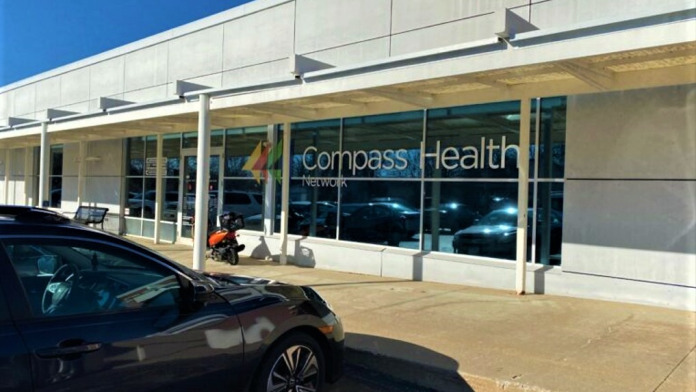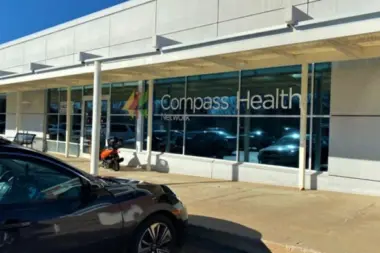About Compass Health Network – Family Health Center – Columbia
Located in St Columbia, Missouri is The Compass Health Network Family Health Center in Columbia. This is an outpatient clinic that works with adults and children who are experiencing struggles with their behavioral health. While they primarily offer psychiatric support, there are counseling services here that can also help you work through the addiction struggles you’re facing as well.
Offering evidence based and person focused care, this Compass Health clinic can be a good step down option for you if you have exited an inpatient or residential treatment program but need to continue your recovery journey with the support of addiction counselors.
This location also provides dental care and general pediatric and family medicine as well. They accept Missouri Medicaid here and sliding scale discounts are available if you qualify.
Psychological Assessments
Along with being a step down option for addiction treatment, this clinic is also a good place to turn to If you’re struggling with your behavioral health. If you aren’t sure why you feel the way you do, you can come to this clinic for a psychological assessment.
Assessments can determine if you have a mental health or coexisting substance use struggle and what the appropriate course of action might be. Assessments are available for both adults and children.
Evidence Driven Treatment
Their behavioral health services and substance abuse services are rooted in traditional recovery approaches including counseling and medication support if necessary. While this clinic does not provide dedicated substance abuse services, you can still come here to receive counseling related to your addiction struggles. This can include getting insight on how to manage complex emotions that pop up during the recovery journey. You can also learn about different programs within the Compass Health Network that provide more specialized support.
Referral Services through Compass Health Network
As your first point of contact for continuing outpatient care, Compass Health Network does a good job connecting you to other services within the organization. For example there’s an opioid addiction program, medication assisted treatment, residential care, and even access to a DUI offenders program.
Facility Overview
Latest Reviews
Rehab Score
Gallery


Other Forms of Payment
Private insurance refers to any kind of healthcare coverage that isn't from the state or federal government. This includes individual and family plans offered by an employer or purchased from the Insurance Marketplace. Every plan will have different requirements and out of pocket costs so be sure to get the full details before you start treatment.
Self-pay involves paying for treatment out of your own pocket. You can use savings or credit, get a personal loan, or receive help from family and friends to fund your treatment. If you don't have insurance or your insurance plan doesn't cover a specific program, self-pay can help ensure you still get the care you need.
Financial aid can take many forms. Centers may have grants or scholarships available to clients who meet eligibility requirements. Programs that receive SAMHSA grants may have financial aid available for those who need treatment as well. Grants and scholarships can help you pai for treatment without having to repay.
Sliding scale payments are based on a client's income and family size. The goal is to make treatment affordable to everyone. By taking these factors into account, addiction recovery care providers help ensure that your treatment does not become a financial burden to you or your family, eliminating one barrier to care.
Medicaid is a state based program that helps lower-income individuals and families pay for healthcare. Medicaid covers addiction treatment so those enrolled can use their coverage to pay for rehab. When a program accepts Medicaid the client often pays very little or nothing out of their own pocket.
Medicare is a federal program that provides health insurance for those 65 and older. It also serves people under 65 with chronic and disabling health challenges. To use Medicare for addiction treatment you need to find a program that accepts Medicare and is in network with your plan. Out of pocket costs and preauthorization requirements vary, so always check with your provider.
Addiction Treatments
Levels of Care
Outpatient Programs (OP) are for those seeking mental rehab or drug rehab, but who also stay at home every night. The main difference between outpatient treatment (OP) and intensive outpatient treatment (IOP) lies in the amount of hours the patient spends at the facility. Most of the time an outpatient program is designed for someone who has completed an inpatient stay and is looking to continue their growth in recovery. Outpatient is not meant to be the starting point, it is commonly referred to as aftercare.
Inpatient rehabs provide a safe, supportive environment for clients to focus on their recovery secure from outside distractions, stressors, and triggers. Clients receive housing, meals, and intensive clinical supervision. They also engage in extensive addiction counseling, often including group and family therapy. Many programs prioritize recovery-focused life skills training to support clients' reintegration into their home, workplace, school, and community. Evidence-based holistic therapies, such as yoga, acupuncture, meditation, hypnotherapy, or animal therapy, may also be provided.
Intensive outpatient programs provide an intermediate level of care, often supporting clients' transition from inpatient rehab to outpatient treatment. Most IOP programs require a minimum of nine therapeutic hours weekly, but clients may receive up to 20 hours of care, with the intensity and frequency of care declining as clients grow stronger in their sobriety. Intensive outpatient treatment generally combines addiction counseling, recovery education, holistic therapies, and, for some, medication assisted treatment (MAT).
12 step programs are designed to enable participants to understand and address the root causes of their addiction, accept responsibility for their life choices, and relinquish control over that which they cannot change. Participants are expected to regularly attend 12 step meetings and to be mentored in their recovery journey by a self-selected sponsor. Meetings are free, anonymous, and open to the public. A variety of formats are available, including programs for seniors, teens, family members, and nondenominational Christians.
A drug intervention in Missouri is a planned meeting between a person struggling with addiction and their close friends and family members. The goal of the intervention is to motivate the individual to seek treatment. To be successful, an intervention requires careful planning which may involve intervention services from an intervention specialist. Theyl can be certified by the Association of Intervention Specialists, or they may have other expertise that qualifies them for this role.
Treatments
Mental health rehabs focus on helping individuals recover from mental illnesses like bipolar disorder, clinical depression, anxiety disorders, schizophrenia, and more. Mental health professionals at these facilities are trained to understand and treat mental health issues, both in individual and group settings.
Programs
Adult rehab programs include therapies tailored to each client's specific needs, goals, and recovery progress. They are tailored to the specific challenges adult clients may face, including family and work pressures and commitments. From inpatient and residential treatment to various levels of outpatient services, there are many options available. Some facilities also help adults work through co-occurring conditions, like anxiety, that can accompany addiction.
Clinical Services
The goal of cognitive behavioral therapy in Missouri is to help clients change their thinking and behavioral patterns. Strategies of treatment include role playing, facing fears, and calming techniques.
A complete course of dialectical behavior therapy typically takes six months. Skills training happens in a group setting. You'll also attend weekly individual treatment sessions to receive coaching from a therapist. You'll work on understanding and accepting your feelings and learn how to manage them to make positive changes.
Group therapy is any therapeutic work that happens in a group (not one-on-one). There are a number of different group therapy modalities, including support groups, experiential therapy, psycho-education, and more. Group therapy involves treatment as well as processing interaction between group members.
In Missouri, therapists and patients work closely in individual therapy to address the personal challenges and triggers that drive addictive behavior. Using a customized approach helps foster self awareness so you can make positive changes toward a healthier, substance free life.
Motivational interviewing is a short term method often used during drug rehab in Missouri. It typically lasts one or two sessions, with the goal of facilitating conversation about change. The client should leave the sessions feeling more decisive and secure in their ability to make the changes they desire in their life.
Within a trauma therapy environment, you have a structured approach to healing from past traumatic events that you witnessed or experienced. You are guided to understand your response and then develop healthier coping skills and mechanisms that Foster greater empowerment and recovery.
Family therapy sessions help individual family members in Missouri learn to improve their communication skills and understand how the family dynamic is both affected by addiction and affects their loved one's addiction. Therapists work with individual members to identify and modify negative behaviors which helps create a more supportive home environment.
Life skills give you the ability to maintain healthy relationships, complete day to day tasks, and cope with challenges. Because substance use disorder often diminishes these skills, rehab in Missouri includes integrated life skills training to rebuild and reinforce these abilities.
Nicotine replacement therapy in Missouri addresses physical dependence on nicotine, while support systems and behavioral therapy address the psychological aspects of addiction. Formats include inhalers, nasal sprays, lozenges, patches, and gum.
Amenities
-
Residential Setting
-
Private Rooms
Staff & Accreditations
Staff
Tim Swinfard
President & CEO
Gloria Miller
Executive VP & Chief Behavioral Health Officer
Alan Stevens
Executive VP & COO
Mayme Sloan
Executive VP, Compliance & Quality & General Counsel
Peter Lyskowski
Executive VP & Chief Administrative Officer
Jake Krafve
Executive VP & CFO
Dr. Katherine Friedebach
Executive VP & Chief Medical Officer
Diane Coletta
Senior VP & Human Resources
Accreditations

The Commission on Accreditation of Rehabilitation Facilities (CARF) is a non-profit organization that specifically accredits rehab organizations. Founded in 1966, CARF's, mission is to help service providers like rehab facilities maintain high standards of care.
CARF Accreditation: Yes
Contact Information
1001 W. Worley St
Columbia, MO 65203